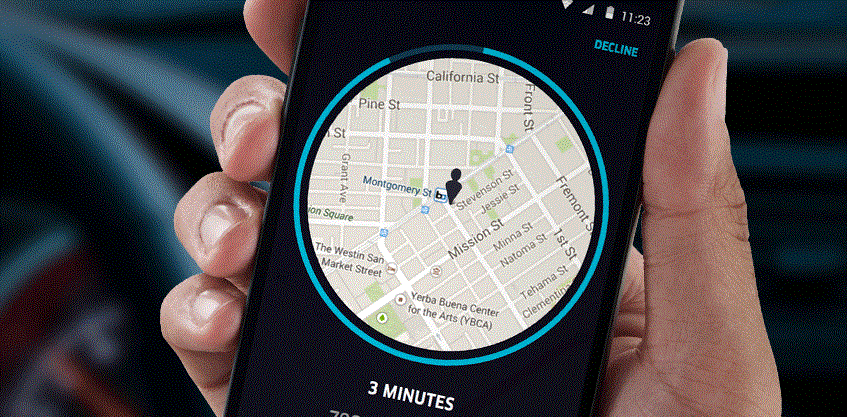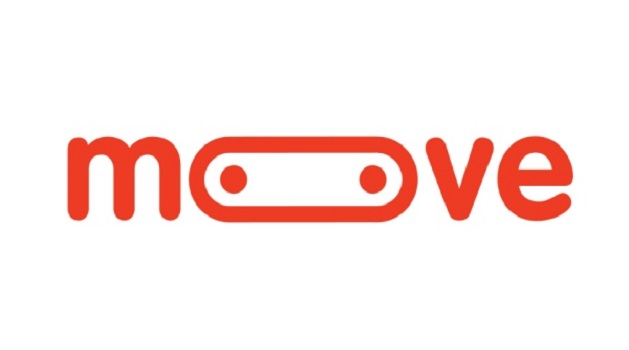General News
Uber Deploys New Solution To Further Address Driver-Partners Needs

By peter oluka
Uber, has disclosed a powerful set of new features on the app that will make it even easier for driver-partners across Nigeria to choose when, where, and how they drive.
Driver-partners in Nigeria choose to drive with Uber because they can use the app on their own terms. With these new features, Uber is doubling up on what’s made Uber the first choice for flexible opportunities and making it even better.
These new features follow the recent launch of Uber’s In-App Chat, a feature which allows driver-partners and riders to chat right in the Uber app without having to share their phone numbers with one another when they need to get in touch.
Lola Kassim, general manager for Uber West Africa explains, “Over the last few months, we’ve spent a lot of time listening to and engaging with over 7000 driver-partners across Nigeria, hearing what they need from the Uber app so that we can improve and transform the driver experience. We are thrilled about the feedback we received as driver-partners have been very clear on what they need. Based on their responses, we will be rolling out products that can address three keys areas: more flexibility for drivers when it comes to when they want to use Uber, using Uber technology to create a stress-free experience, and building on safety.”
To start, Uber will be launching a number of products that drivers have asked for:
Driver Share My Trip:
Uber already offers a way for riders to share their trip status with their contacts, and so the Share My Trip feature now allows drivers to share the trip information with loved ones, without implicating the privacy of the rider or divulging personal information or specific drop off or pick up points.
Arrival Destination & Time:
Drivers will now be able to set the time that they want to arrive at their final destination at any time of the day with the Arrival Time feature. As drivers go about their day with the destination and arrival time set, the app will notify them when it’s time to start heading toward their destination.
At that time, they’ll be connected with a trip along the same path. This allows for more flexibility and allows them to make a little extra money on the way.
Long Trip Notification:
Information will be sent to driver-partners to fit driving around their lifestyle, which means drivers will now get a heads-up when a trip is estimated to be 45 minutes or longer, so they can plan accordingly.
Rating Protection:
Sometimes riders might give their trip a low rating for reasons beyond a drivers control like an issue with the Uber App. With the new ratings policy, these type of ratings won’t count towards a drivers score. Uber will still get the feedback to help them improve but it won’t impact the driver’s overall rating.
What does this mean for driver-partners? Kassim explains, “When Chinonyerem goes online to start accepting rider requests, he can use the “Share My Trip” feature to share his information about his trip with his wife such as where he is on the map. He is in control to start and stop sharing with his wife or other contacts as he’d like, and she can easily see his whereabouts on a map with quick-dial contact details and his license plate number.”
“Or take, for example, driver-partner Adekunle, who has been driving for quite some time that day and wants to end his time on the Uber app in the next hour so. “Long trip notification” allows for him to know in advance if the next trip will be more than 45 minutes so that he can choose to accept it or it goes to the next available driver, allowing him to go home when he needs to.”
“Drivers play a key role in defining Uber’s future and we want them to know that we are committed to ensuring the app works best for them first. We believe these new features will create meaningful changes to their lives and driving experience,” concludes Kassim.
But this is only the start – by putting driver-partner concerns and dialogue at the heart of Uber’s strategy, Uber will continuously work on improving their experience with the app.
This isn’t just about new features – it’s about a sustained commitment over time, and Uber is incredibly excited to apply the full strength of Uber to improve and transform the driver experience for the 7000 men and women who drive with Uber every week.
General News
Cybervergent Selected as World Economic Forum’s 2025 Technology Pioneer Company

In affirmation of its global standing, Cybervergent, a Pan-African technology company that leverages artificial intelligence to transform how organisations manage risk, governance, privacy, and cybersecurity, has been selected as one of the World Economic Forum’s (WEF) Technology Pioneers for 2025—a global cohort spotlighting companies transforming industries through breakthrough technologies and responsible innovation.

The WEF, an international organisation committed to improving the state of the world through public-private collaboration, brings together global leaders to shape economic, technological, and societal agendas. Cybervergent now joins this global community.
The company is recognized for its innovative approach to building digital trust, reimagining how organisations manage cybersecurity, risk, privacy and governance.
Commenting on the company’s milestone, Adetokunbo Omotosho, CEO of Cybervergent, said, “I am honoured that Cybervergent has been named a Technology Pioneer by the World Economic Forum. This is more than an accolade — it’s a validation of our commitment to redefining cybersecurity, privacy, and risk management to build true digital trust.
“What makes this recognition even more meaningful is the fact that Cybervergent demonstrates innovation in AI and infrastructure can emerge from any region, challenging conventional perceptions.”
Some past recipients of the Technology Pioneer recognition, including Google, Spotify, and Airbnb have gone on to fundamentally reshape global industries.
As a member of the 2025 Technology Pioneers community, Cybervergent will be contributing to discussions shaping cybersecurity, AI, and cyber resilience across industries and the global digital economy.
General News
Moove Plans to Raise $1.2Bn Debt Round for US Autonomous Vehicle Expansion

Moove, an African mobility fintech startup, is on a quest to secure a $1.2 billion debt financing round to support the rollout of a fleet of autonomous vehicles.

This is in partnership with Alphabet Inc.’s Waymo in the United States, according to a Bloomberg report citing sources familiar with the matter.
The startup has since attracted backing, including from Uber Technologies Inc., and entered a strategic partnership with Waymo in December 2024 to provide financing for self-driving cars.
Ladi Delano, co-founder of Moove, noted that the company has a solid financial track record.
“Moove has built strong relationships with some of the world’s leading lenders. We have also fully repaid our first-ever debt facilities, which signals our maturity and marks a key milestone that demonstrates the strength of our platform as we enter the next phase of global autonomous-vehicle infrastructure deployment,” he said.
The round is reportedly oversubscribed, with strong participation from private credit firms and banks.
Waymo has also not made any official statement regarding the funding round. While final details are expected to be concluded in the coming weeks, the deal will mark a significant milestone for the firm as it ramps up its global ambitions.
Founded in 2020 by Nigerian entrepreneurs, Ladi Delano and Jide Odunsi, Moove began by providing vehicle financing for ride-hailing drivers in Africa’s largest cities.
General News
Firm Explores the Evolution of AI-powered Ransomware with Password-gated Capabilities

Kaspersky experts have revealed the inner workings of FunkSec — a ransomware group that illustrates the future of mass cybercrime: AI-powered, multifunctional, highly adaptive and operating on volume with ransoms as low as $10,000 to maximise profits.

Kaspersky’s Global Research and Analysis Team (GReAT) constantly monitors the ransomware threat landscape, where attacks continue to rise. According to the company’s latest State of Ransomware report, the share of users affected by ransomware attacks worldwide increased to 0.44% from 2023 to 2024, up by 0.02 percentage points.
While this percentage may appear modest compared to other cyber threats, it reflects the fact that attackers typically prioritise high-value targets rather than mass distribution, making each incident potentially devastating. Within this evolving landscape, FunkSec has emerged as a particularly concerning threat.
Active for less than a year since its emergence in late 2024, FunkSec has quickly surpassed many established actors by targeting government, technology, finance and education sectors. What sets FunkSec apart is its sophisticated technical architecture and AI-assisted development.
The group packages full-scale encryption and aggressive data exfiltration into a single Rust-based executable, capable of disabling over 50 processes on victim machines and equipped with self-cleanup features to evade defenses.
Beyond its core ransomware functionality, FunkSec has expanded its toolkit to include a password generator and a basic DDoS tool — both showing clear signs of code synthesis using large language models (LLMs).
FunkSec’s approach reflects the evolving landscape of mass cybercrime, combining advanced tools and tactics. Kaspersky’s GReAT experts highlight the key features that define their operations:
Password-Controlled functionality
GReAT experts discovered that FunkSec ransomware features a unique password-based mechanism that controls its operation modes. Without a password, the malware performs basic file encryption, while providing a password activates a more aggressive data exfiltration process in addition to encryption to steal sensitive data.
FunkSec packs full-scale encryption, local exfiltration and self-cleanup into a single Rust binary—without a side-loader or a companion script. That level of consolidation is uncommon and gives affiliates a plug-and-play tool they can deploy almost anywhere.
Use of AI in development
Code analysis shows that FunkSec is actively using generative artificial intelligence to create its tools. Many parts of the code seem to be automatically generated rather than manually written. Signs of this generic placeholder comments (such as “placeholder for actual check”) and technical inconsistencies, like commands for different operating systems that don’t align properly. Additionally, the presence of declared but unused functions—such as modules included upfront but never utilised — reflects how large language models combine multiple code snippets without pruning redundant elements.
“More and more, we see cybercriminals leveraging AI to develop malicious tools. Generative AI lowers barriers and accelerates malware creation, enabling cybercriminals to adapt their tactics faster.
By reducing the entry threshold, AI allows even less experienced attackers to quickly develop sophisticated malware at scale,” comments Marc Rivero, Lead Security Researcher at Kaspersky’s GReAT.
High-volume, low-ransom strategy
FunkSec demands unusually low ransom payments, sometimes as little as $10,000, and pairs this with the sale of stolen data at discounted prices to third parties. This strategy appears designed to enable a high volume of attacks, helping the group quickly establish its reputation within the cybercriminal underground. Unlike traditional ransomware groups that seek million-dollar ransoms, FunkSec employs a high-frequency, low-cost model — further underscoring its use of AI to streamline and scale operations.
Expands beyond ransomware
FunkSec has expanded its capabilities beyond the ransomware binary. Its dark leak site (DLS) hosts additional tools, including a Python-based password generator designed to support brute-force and password-spraying attacks, as well as a basic DDoS tool.
Advanced evasion
FunkSec employs advanced evasion techniques to avoid detection and complicate forensic analysis. The ransomware is capable of stopping over 50 processes and services to ensure thorough encryption of targeted files. Additionally, it includes a fallback mechanism to execute certain commands even if the user launching FunkSec lacks sufficient privileges.

 Telecom2 days ago
Telecom2 days agoMTN Nigeria Debuts Game-Changing CPaaS Platform at NextNow Forum

 E-Financial2 days ago
E-Financial2 days agoNAICOM Issues New Licenses to SanlamAllianz Life, General Insurance

 News2 days ago
News2 days agoAMCON Confirms ₦100Bn Sale of Ibadan DisCo Amid Legal Disputes

 E-Financial2 days ago
E-Financial2 days agoGTCO to Become First Nigerian Bank to List on London Stock Exchange

 E-Business2 days ago
E-Business2 days agoDomain of Deception as Attackers Deploy Spyware Under Guise of Legal Threats

 E-Financial1 day ago
E-Financial1 day agoCourt Affirms NIBSS Authority to Manage BVN

 News2 days ago
News2 days agoDBI, Miva Open University Partner to Advance Digital Innovation, Education

 Broadcasting2 days ago
Broadcasting2 days agoIFC, AfDB Collaborate with EbonyLife Media to Explore Supporting the African Film Industry to Drive Job Creation



























